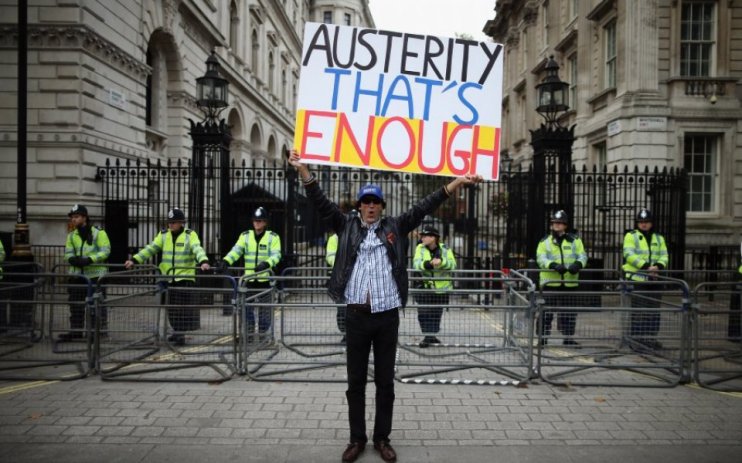Without Brexit, there would never have been a harsh austerity Budget this week, says BoE veteran

The real reason Britain is facing harsh austerity measures is the UK’s departure from the EU, according to a senior economist.
Former Bank of England interest rate policy maker Michael Saunders said that Brexit has ‘permanently damaged’ the UK’s economy.
“The UK economy as a whole has been permanently damaged by Brexit,” said Saunders, who was a member of the Bank of England’s monetary policy committee.
“It’s reduced the economy’s potential output significantly, eroded business investment,” Saunders told Bloomberg TV.
“If we hadn’t had Brexit, we probably wouldn’t be talking about an austerity budget this week.”
Michael Saunders
“The need for tax rises, spending cuts wouldn’t be there, if Brexit hadn’t reduced the economy’s potential output so much,” he decalred.
Saunders, who became a member of the rate-setting committee in 2016, left the Bank of England’s prominent position in August of this year.
Over the weekend, chancellor Jeremy Hunt warned that tax will rise for everyone in his autumn statement next week, while promising the most vulnerable will be protected.
The chancellor said the government “will be asking everyone for sacrifices” but that there is “only so much we can ask” from low income workers.
Hunt is expected to raise between £55bn and £60bn through a mixture of spending cuts and tax hikes next week as he tries to manage government borrowing.
There has been speculation this will include further freezes to Income Tax thresholds and lowering the highest Income Tax bracket from £150,000 to £125,000.
“I think people will notice, because these are difficult decisions, but they will also see there’s a plan to get through this,” he told the BBC
“I want people to understand, that although these are difficult decisions, we will be doing it in a way that means that we get through to the other side.”
Jeremy Hunt
He also warned that energy support for households and businesses may be limited after April.
He said: “Will we continue to support people? Yes we will. Will it be uncapped, unlimited? There has to be some constraint to it but we will continue to support families and I’ll explain exactly how we are going to do that.”
The UK’s debt has ballooned after Covid-19 and a series of energy support packages, while the government’s repayment costs surged after the disastrous September mini-Budget.
Labour shadow chancellor Rachel Reeves said the government had to make some difficult decisions, but that public services should be protected.
“Just because you have to make difficult decisions it doesn’t mean you have to make the same decisions,” Reeves said.
“The decisions and choices that Labour would be making would make our tax system fairer and grow the economy so we’ve got the money for those essential public services.”